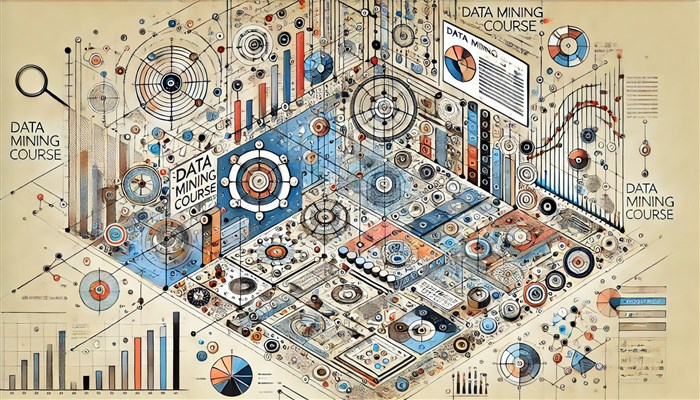Unable to find what you're searching for?
We're here to help you find it
In the era of Big Data, the demand for professionals skilled in data mining has skyrocketed. However, with a plethora of data mining courses available today, choosing the right one can be a daunting task.
Data mining has become an essential skill in today’s data-driven world, particularly for professionals in fields like data science, business analytics, marketing, and IT. Whether you’re just starting out in data mining or looking to expand your existing knowledge, selecting the right course for your skill level is crucial to making the most of your time and learning experience. This guide will help you navigate the vast array of data mining courses, identify your skill level, and select the best course to fit your career goals.
Before diving into course selection, it’s important to understand what data mining involves. Data mining is the process of discovering patterns, correlations, and insights from large datasets using statistical, machine learning, and database management techniques. It plays a pivotal role in industries such as finance, marketing, healthcare, and technology, where massive amounts of data are collected and analyzed.
Whether you're aiming to extract useful insights for business decisions, improve customer segmentation, or predict future trends, data mining is an invaluable tool.
Before choosing a course, it’s important to assess your current knowledge of data mining to find a course that matches your experience and skills. Here’s a breakdown of different skill levels:
A beginner is someone who has little or no prior knowledge of data mining or data analytics. If you're new to data analysis and have limited experience with statistical tools or coding, you fall under this category.
If you have some experience with data analytics or have worked with basic data mining tools but lack in-depth knowledge of advanced techniques or industry-specific applications, you would be classified as an intermediate learner.
Advanced learners have significant experience with data analytics, coding, machine learning, and perhaps some data mining work in a professional setting. You likely have experience working with complex datasets and tools and are looking to refine your skills or learn specialized techniques.
Once you’ve determined your skill level, you can start narrowing down course options based on your needs.
Regardless of your skill level, the following features should be considered when evaluating a data mining course:
Ensure the course covers topics that align with your goals and current knowledge. Beginners should look for foundational topics such as:
Intermediate and advanced learners should seek out more specialized content, such as:
Hands-on practice is crucial for mastering data mining. Look for courses that offer practical projects or case studies where you can apply data mining techniques to real-world problems. Many courses include datasets for analysis, which helps reinforce concepts.
Consider whether the course provides a certification upon completion. Certifications can boost your resume and validate your knowledge in a competitive job market. Choose courses offered by recognized institutions, online platforms, or universities that hold weight in the industry.
Different courses use different tools and programming languages for data mining. Beginners may want to start with more accessible platforms like Excel or basic Python and R libraries. Intermediate and advanced learners may want courses that cover:
The quality of instruction matters. Look for courses taught by experienced instructors who have real-world experience in data mining. Reviewing student feedback and ratings can also provide insights into the course's quality and how it has helped others.
Here’s a breakdown of recommended course features for different skill levels:
As you choose a data mining course, consider how it aligns with your career aspirations. Are you looking to become a data analyst, data scientist, or business intelligence professional? Here are some considerations:
Conclusion
Choosing the right data mining certification depends on your skill level, career goals, and preferred learning style. For beginners, focus on building a strong foundation in data mining concepts and tools. Intermediate learners should seek out more challenging projects and real-world applications. Advanced professionals can deepen their expertise by diving into specialized techniques and industry use-cases.
By selecting the right course, you’ll not only enhance your knowledge but also boost your career prospects in an increasingly data-driven world. Take the time to evaluate your options, and embark on the learning journey that best fits your experience and aspirations.
Choosing the right data mining course for your skill level requires careful consideration. By considering the factors mentioned above, you can ensure that the course you choose is the best fit for your needs and career goals. With a data mining certification from Koenig Solutions, you can equip yourself with the skills needed to excel in the fast-paced world of Big Data.

Aarav Goel has top education industry knowledge with 4 years of experience. Being a passionate blogger also does blogging on the technology niche.










